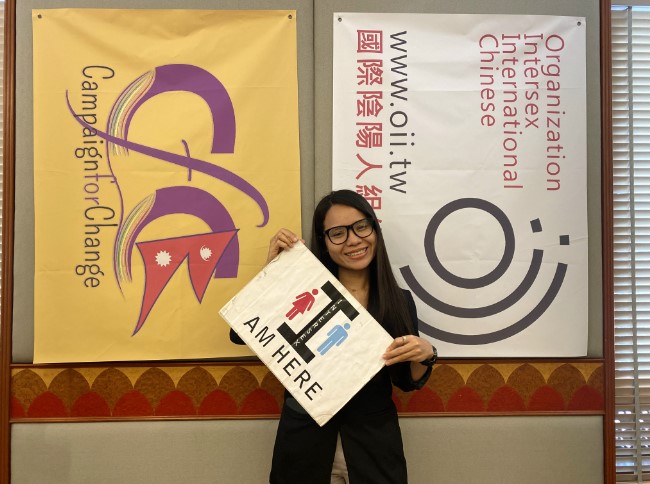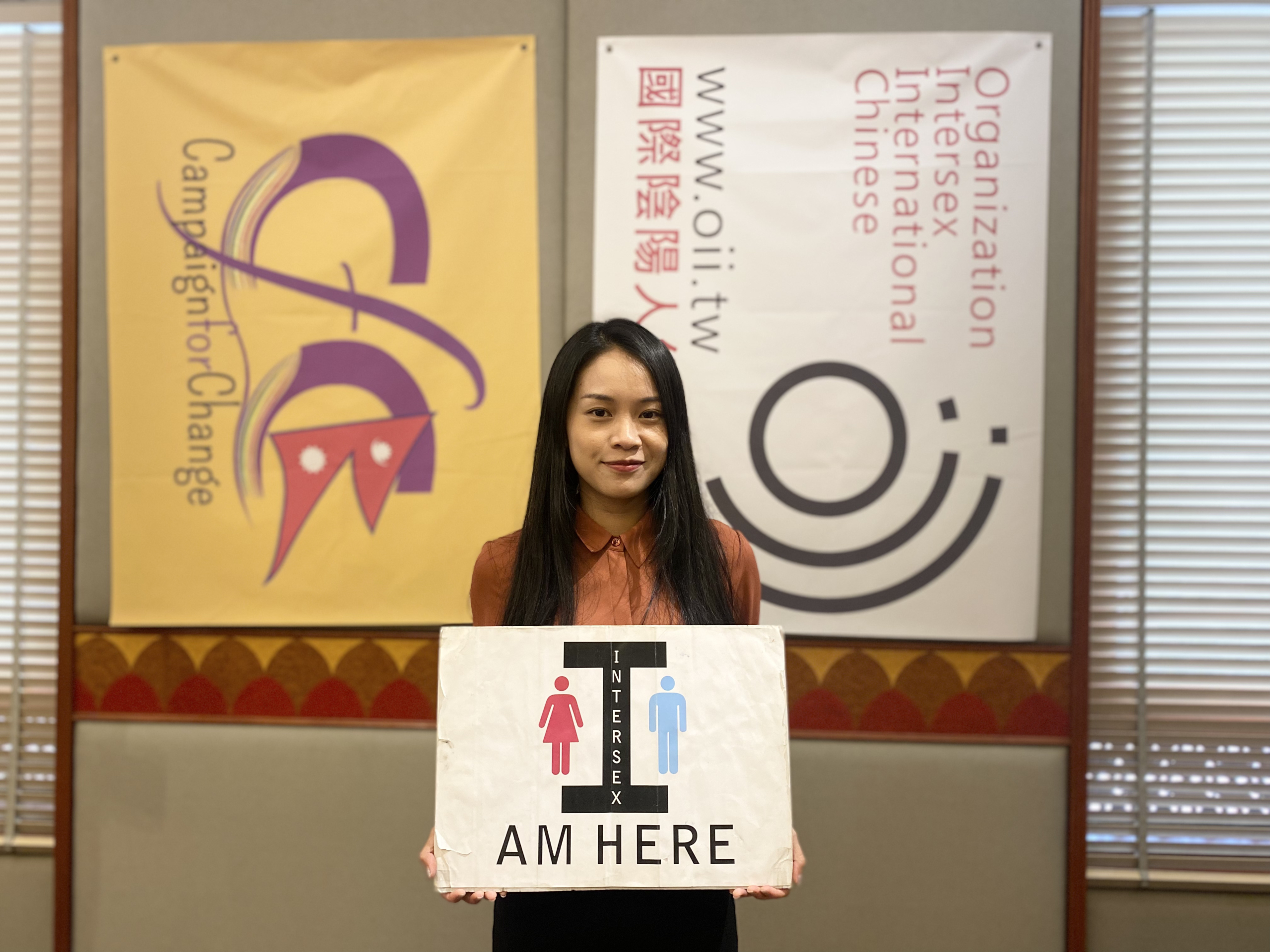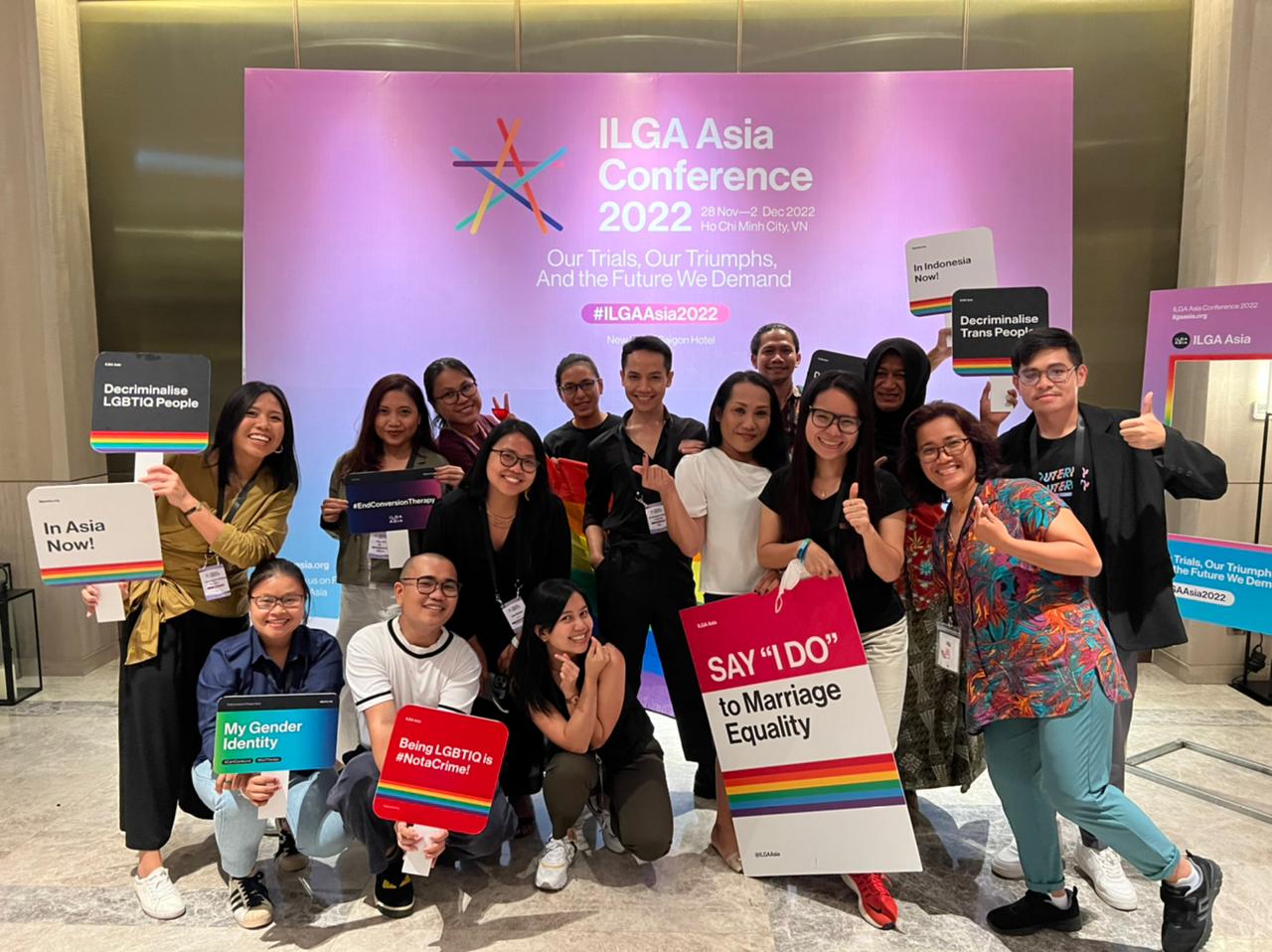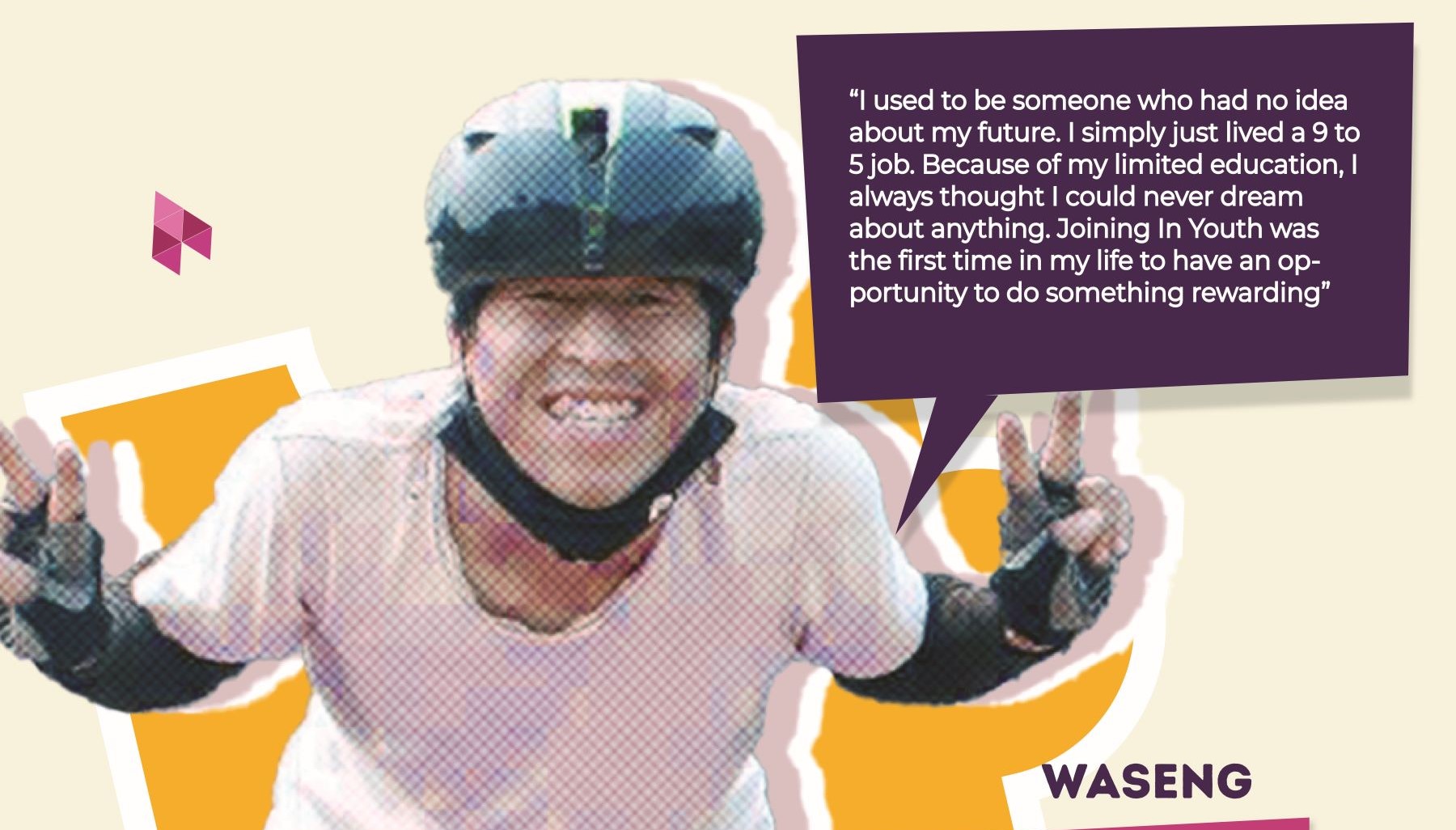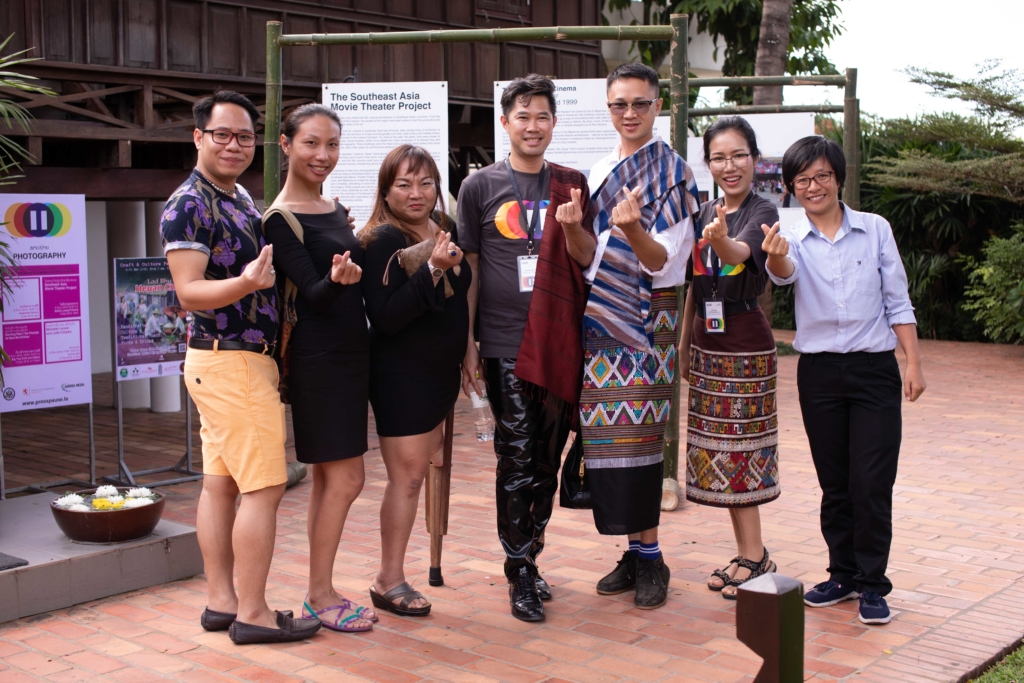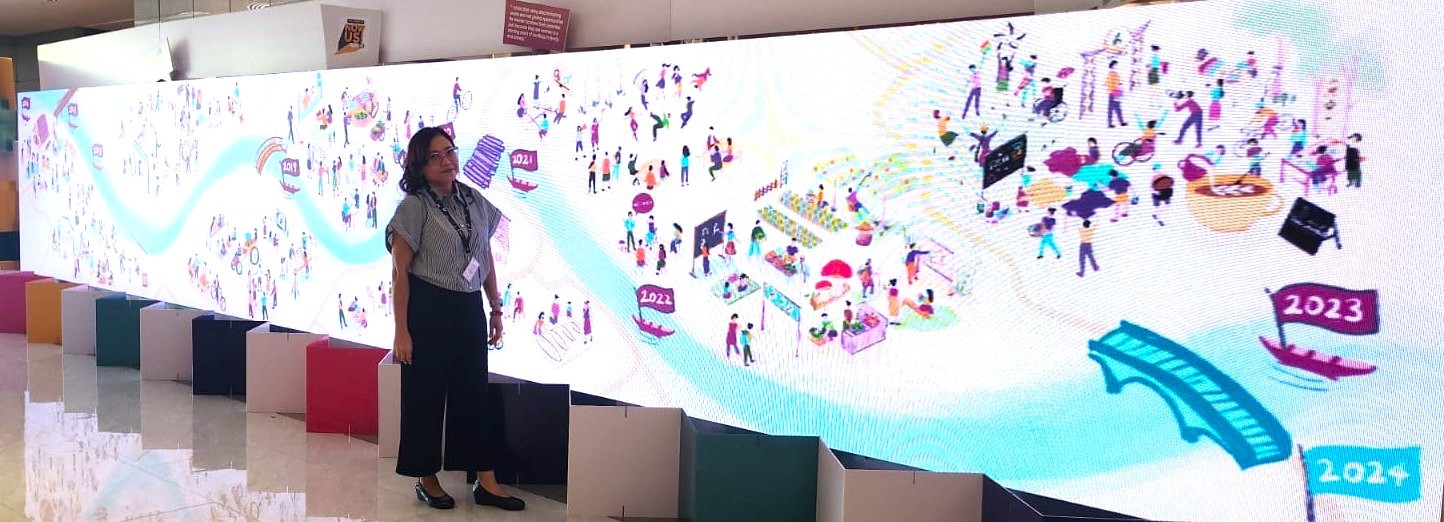3rd Asian Intersex Forum: “The human rights of Intersex People” promoting intersex human rights in Asia
By Bounyali Souvankham (Linking, Learning and Amplifier officer, Laos) and Saophorn Phoeng (Linking, Learning and Amplifier Officer, Cambodia)
In October 2022, Voice Linking Learning and Amplification officer from Laos and Cambodia had the honour of attending the 3rd Asian Intersex Forum in Bangkok by Intersex Asia. While this was not our first time attending an event like this, we couldn’t contain our excitement since the day we received the invitation. The inaugural Asian Intersex Forum was held in February 2018 in Bangkok, Thailand. The forum served as the most important platform for the intersex community to engage at the grassroots level, specifically to learn and share from one another’s experiences and context, particularly in producing an intersex statement and contributing to its progression. Writing about the forum reminds us of the activeness and hopeful expressions of Asian intersex participants after the pandemic had put them connected virtually since the second Forum was the Asia Intersex 2022 conference brought together 21 intersex activists representing organizations and communities from Taiwan, India, and Indonesia, the Philippines, Nepal, Pakistan, Thailand, Japan, and Mongolia. The forum flows from internal discussion among participants on drafting the public statement by the Asian Intersex Movement. The forum flows from internal discussion among participants on drafting the public statement by the Asian Intersex Movement, then finalization of the statement and a public event in the following day.
The first hours kicked off with Hiker Chiu, a Taiwanese intersex human rights activist who founded Organisation Intersex International (Oii) and currently serves as both the Chair and Executive Director for Intersex Asia since 2021, giving a presentation on intersex history and the development of the Asian and global intersex movements. According to Free and Equal, United Nations. “Intersex People are born with sex characteristics (including genitals, gonads, and chromosome patterns) that do not fit typical binary notions of male or female bodies. Intersex is an umbrella term used to describe a wide range of natural bodily variations. In some cases, intersex traits are visible at birth, while in others they are not apparent at all.”
Hiker Chiu has simply put that “Intersex is human. We are one, and we must be one. To each other in this room, we identify ourselves as intersex, but to the others in society, we are humans, and we call now for our human rights.”
Hiker expressed that one of the major issues in Asia is language barriers among many Asian countries, with most intersex information available only to English-speaking countries. So, Hiker Chiu established Oii Chinese in 2008 to disseminate information to Chinese-speaking LGBTQI people. Chinese-speaking people needed access to this critical information about intersex.
Participants from nine countries reported on their home countries’ intersex legislation. Significant legal issues are related to public health concerns of LGBTQI+ people, specifically intersex people, while taking into account the various social contexts and cultural norms.
- PH: Currently, there is no protocol for surgeons to follow when treating intersex patients. The Philippines is proposing legislation to criminalize gender identity normalization. In fact, there is no guarantee that the predicted or assumed gender identification of a surgeon will correspond to the identity of the child. At this stage, there is only a few lawyers are willing to take intersex cases, and allies are lobbying for lawyer representatives.
- JP: Some LGBTQI+ students in Japan stopped attending school because they were bullied. There is currently no law in place to ensure that everyone is safe and able to attend school. As of 2021, sexual orientation and gender identity are not protected under national civil rights laws; the LGBQI+ are left with few legal options when faced with discrimination in areas such as employment, education, housing, and health care.
- Intersex people in most Asian countries currently feel unsafe due to a lack of evidence-based research and legal protection for their rights.
- IND: According to an Indian representative, 40% of LGBTQI+ people considered suicide, while 80% considered self-harm. This suggests that some environments are harmful to mental health. Bullying, prejudice, and unequal treatment are still prevalent, particularly in Indian schools. Inadequate funding for intersex, resulting in intersex people’s exclusion; and inadequately educated professionals who have experienced intersex-related trauma.
- IDO: Health was one of the main concerns among many intersex people, and the general public appears to have very limited understanding about it.
- TH: Intersex people were excluded from a vulnerable group in Thailand in 2012. There has been a significant regarding free service for intersex gender makers, which the government has promoted free service for surgery; however, in particular, the intersex identity for such medical certificate is only verified in Bangkok instead of access service in the province. This makes them more vulnerable and susceptible to certain types of discrimination. The LGBTQI+ community is prejudiced and discriminated against; as a result, they relocate away from their home due to the demeaning “You have a monster daughter in the family.”
- MN: Mongolia representative reported the lack of fundamental human rights and needs Intersex people are treated conservatively in medical settings, particularly in the area of health, and there is no law that is considered to protect the intersex population.
- NP: In Nepal, legislation exists, but the government fails to implement it; public practitioners deny intersex patients due to a lack of guidelines and awareness about intersex.
- TW: While Taiwan became the first Asian country to legalize same-sex marriage in 2019, there are still gaps that leave intersex people vulnerable and stigmatized.
The intersex community valued a public event highly. On the topic of “Draft Law: Protection of Intersex People in Thailand ” a panel discussion was held. The deputy chief of Belgium’s embassy in Thailand participated in the panel and shared information about the law that made Belgium the second country after the Netherlands to legalize same-sex marriages, in which the rights of same-sex and opposite-sex couples are equal. The member board of directors for the Thai Sang Thai Party and the policy specialist from UNDP’s regional office in Bangkok addressed the most recent and pertinent policies, what they are thriving on, and what can be expected in terms of future outcomes of LGBTQI+ people in the region.
“The rights of Thai intersex individuals have not been protected by any significant legislation or policy. The intersex human rights movement in Thailand is currently at a turning point concerning the development of a legal protection framework for intersex individuals. As a result, Intersex Thailand has taken the initiative to draft a law that seeks to provide aa comprehensive legal protection system for the intersex community #MyBodyMyChoice” shared by Nada Chaiyajit of Intersex Thailand, who moderated the panel discussion and gave a presentation on the draft law
Voice funded and worked with civil society who live “Nothing About Us Without Us” and for us to be presented in the 3rd Intersex forum means we get to share the collective journey with Intersex Asian allies. Voice strongly believes that what unites us is much bigger than what divides us. We are incredibly proud to see how our support has enabled important allies and groups representing rightsholders to coordinate their efforts and more effectively bring about transformative change in the communities they serve.
“The entire journey to the forum, as well as hearing many activist life experiences, including coming out as intersex, has sharpened our mindfulness and passion for broader inclusion of intersex issues and stories that provide a lot of insight into conquering finding their identities and starting a movement. This has inspired us to begin raising intersex knowledge and spreading awareness and visibility in our respective countries.” Saophorn and Bounyali, Linking Learning and Amplification Officer.
